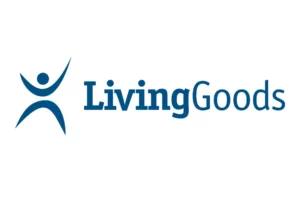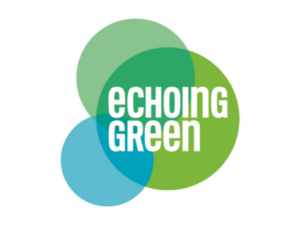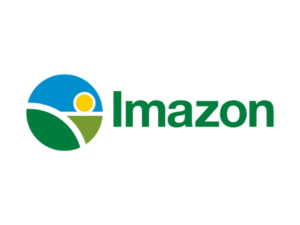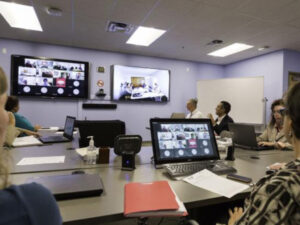Well Grounded works across the Congo Basin to support civil society organizations by providing organizational and strategy development support so that they can have real and sustainable impacts on forest governance and community rights.
Kitty Brayne and Stephany Kersten of Well Grounded spoke to Ashley Hopkinson on January 16, 2024. Click here to read the full interview with insights highlighted.
Ashley Hopkinson: Could you start by introducing yourselves and describe the problem Well Grounded has started to solve and how you are solving that?
Kitty Brayne: I’m Kitty Brayne. I’m Co-Director for Programs and Partnerships at Well Grounded.
Stephany Kersten: I’m Stephany Kersten, and I’m the Organization Development Program Lead at Well Grounded.
Kitty Brayne: Well Grounded was founded by people working in forest governance and conservation in the Congo Basin who gradually realized that there were some fundamental problems in the sector that prevented local organizations from playing their part in that space: power issues, funding, organizational capacity, and strategy. Some fundamental issues that blocked them from getting the work done needed to be addressed before they could get into what activities they’re going to run. So, they founded an organization that specialized in strengthening the local organizations. Fundamentally, the Congo Basin is the world’s second lung, so there’s a huge global priority to conserve those forests.
Global climate and the hundreds of thousands of people living in that region are depending on those forests for their identity and their livelihoods. There’s a clear role for local communities to play in managing and governing those forests. Since Well Grounded was founded, that’s become more recognized on the global level.
We’ve got big commitments in the CBD to get funding to those communities. But they’ve been left out of the conversation for centuries, so they need a bit of support to organize themselves into organizations that can really deliver that work and receive the funds. We’re trying to bridge some of those gaps with organizational strengthening and leadership support.
Stephany Kersten: There’s a lot of funding available for organizations, but there’s been a lot of complaints as well. [Local organizations] were interpreted as misusing funds, but they’re not really looking at how the organizations are organized. There was all this funding, but there was less attention for helping these organizations to be able to direct this funding to conserving the forest of the Congo Basin. That’s the gap where Well Grounded stepped into to provide organizational development & accompaniment for the organizations that received funding from donors.
Ashley Hopkinson: So overall, the goal is about the global work of forest preservation and that people are culturally respected: able to live on the land and make use of the land. But also, there was a missing component that even when money was coming in, there was a structural disconnect in how to use it appropriately. ‘Where do we use it? How do we organize ourselves around that?’ Is that the space where Well Grounded operates?
Stephany Kersten: Yeah. We talk about conservation, but we also talk about governance because governance is about using the resources in a sustainable way. It’s not only about conservation, it’s also about the governance and sustainable use of the natural resources in the forest & everything that you find in it.
Kitty Brayne: We focus on the people and their role in conservation and managing their resources.
Ashley Hopkinson: Who would you say benefits from your work and how do they benefit?
Kitty Brayne: The primary groups are civil society, in general, but also civil organizations such as national and local NGOs. We don’t really work directly with governments. We focus on supporting individuals as well as National Civil Society Organizations that are working closely with the communities that live around the forests. We don’t tend to work directly with the communities, but they are kind of the secondary beneficiaries.
Ashley Hopkinson: How do you find the organizations you work with? How do you propose partnering with them and supporting their structural needs to better serve their communities?
Kitty Brayne: We do extensive scoping ourselves; going out and asking people: Who’s doing what? Who do they know? What are they doing? Anyone else doing something like this? When we’re organizing a leadership program, we find out who the people and organizations are in that space. We keep an ear to the ground, continually trying to find them. Sometimes, organizations come to us.
Stephany Kersten: It’s also grown naturally because the founders of Well Grounded worked in forestry in the Congo Basin, so they know the other organizations as well as organizations supported by external donors. It started from their work with them, then the word got out and it got rolling. When we have projects for organizational development, we try to find organizations interested. We also focus on working with networks of civil society organizations because there’s already a large group of organizations that are members of those networks.
Ashley Hopkinson: What would you say makes Well Grounded distinctive in the space?
Kitty Brayne: I think a key thing is that we’re not coming in with any kind of technical solutions, like, ‘Here’s how you should go out and manage your forest, do this, do that. We’re the experts.’
Instead, we help facilitate the internal processes of those organizations so that they’re better at figuring out their own solutions. We’re one step back. We help organizations make good decisions that take into account the needs of various stakeholders, communities, and other partners.
That makes us different. It’s capacity building. What makes us different in the space is that we’re more focused on organizational development rather than compliance where we’ll come in to train you on how to fill out a budget and accounting processes. We also don’t do one-off trainings. We engage in a long-term process focused on the whole organization.
Ashley Hopkinson: You guys do a lot of invisible work that then becomes visible as these organizations become more successful in doing the work. You’re in the background, but you’re in the foreground too.
Stephany Kersten: We’re not working from problems. We take an appreciative inquiry approach: it’s a positive approach that finds what works well and builds on that.
Ashley Hopkinson: What is working in this space and how are people finding success with the different work that they’re doing across these areas? Can you share a story that illustrates the impact of Well Grounded?
Stephany Kersten: CAMGEW, an organization on the Ring Road of the northwest of Cameroon in the remote anglophone corner that sticks into Nigeria, is a good example.
They started working with the community on producing honey, which is a very valuable product that they got from a mountainous forest. But every year, this forest was burned. When the forest burned, they couldn’t produce honey. It was happening naturally, but it was preventable. So, to improve the honey production system in Kilum-Ijim Forest in the northwest of Cameroon, they began protecting that forest.
They see the value of protecting the forest because of the high value of honey. It’s how they started, but this organization has now extended their practices to other areas of Cameroon. In the beginning, we were working with them on developing a strategic plan so they can attract people to work for their organization or work with them as consultants. They wanted to set up a more agile and flexible structure, but they had a lot of problems with their board. They wanted to transform their board into becoming a real governance and advisory body for the organization.
They really acknowledged the support of Well Grounded, and they’ve asked us to start working with them again to expand their honey production.
Kitty Brayne: They have a revenue generating business that provides income to the charity for that.
Stephany Kersten: And they started an agroforestry farm in another area of Cameroon that’s also becoming an enterprise because they’re producing, at the same time, using it as a farmer field school where they teach others how to produce in a more sustainable way. It’s a huge development in setting up the green economy.
Kitty Brayne: Passionate people who have great ideas set up this organization, so we can’t claim credit for their entire impact and results; but when we interviewed them for a case study, they attributed their recent success to the processes that we facilitated with them.
We helped them identify what they do best and where they were going to get the most impact, so they let go of some activities that were pulling them into different directions. Since working with us, CAMGEW have almost doubled their annual organisational budget. They’ve gotten a few major prizes and recognition recently as well and are known in the international scene.
The key is finding an organization that knows what they want to do, what they want to achieve, who they are, what they’re passionate about, has ideas, but needs help organizing. Then we can help them get past that inflection point when they can start to generate more support for themselves to go further. Because organizational change is constant, we can also support them at later stages as well.
One thing to point out is that they didn’t record any bushfires in 2020, so the conservation impact is happening. It’s working. There’s been big changes.
Stephany Kersten: They are also involved with climate change, organizing at the national level with the Cameroonian government, so they’re being recognized as an important organization.
Ashley Hopkinson: How as an organization do you measure success?
Kitty Brayne: It’s hard for us to say this bit of forest has been conserved directly because of our work, but we’ve set up an outcome mapping monitoring system. We define with partners where they want to get to, then we have tools to assess how they’re moving in that direction while gathering stories of change. We then try to join the dots from an organization.
Say the organization’s main goal was to become more strategic or generate more funds. We can measure all of that. Then, we see what they go on to do. We gather that information in a more story-based case study. It’s something that we’d like to work on a bit more; building those together into a case for this kind of support. It’s a bit less tangible sometimes, but it’s clearly needed.
Stephany Kersten: Successes of the organizations are measured in terms of conserving or governing natural resources, but there’s also a social justice part to have community inclusion and diversity. That’s something we would like to measure.
Kitty Brayne: We would love to measure it, but just there’s a mathematical difficulty since each organization formulates their own vision and measurement of impact. For CAMGEW, it might be about kilos of honey as well as the amount of forest. It’s kind of hard to add up all the different metrics from various organizations into one neat number, sort of like apples and oranges.
At the moment, it’s more around stories of change. I think there could be ways of doing that in the future; collecting that on a bigger scale. But again, we can’t say that’s our impact. We hope we contributed to it, but we can’t attribute the full impact of an organization as Well Grounded’s impact. We’re looking at the systems level change.
Ashley Hopkinson: What advice would you give to someone who would want to replicate what you did?
Stephany Kersten: Work from strengths, assets, and aspirations that people have because that’s where the energy is to improve. That’s the basis of all the work we’re doing.
Ashley Hopkinson: If you’re working from strengths, do you go into an organization and just ask them flatly, “What has been working for you? What do you feel is going well?” And then start the conversation from there?
Stephany Kersten: We start from an organizational analysis. We work with organizations; we don’t do things for them, but we facilitate their processes. We ask questions and have them think through the whole organization. We use models that touch on all the different aspects, but they decide on where they are, how they do things, and where they could improve.
Ashley Hopkinson: What is an insight or a teachable lesson that can be taken from your work that could be valuable to others?
Kitty Brayne: The underpinning key pieces that we keep in mind are around power and trying to set up the processes & the work so that the ownership & the decision making is in the hands of the people — the organization that is doing the work.
That’s one of the most useful things that could be shared in a lot of different sectors because, often, power is the other way around. The money is decided in a budget with someone elsewhere and the local organizations are just implementing. They have to do these activities in order to get that money. Whereas, in the processes that we facilitate, we set it up so that they own the processes and they bring us in as support to do the thing they wanted to do in the first place. It’s not us imposing a plan because we’ve got the money.
Otherwise, they might go along with the funder’s plan, but it might not have any lasting change because it’s not the change they wanted to achieve with their organization. They just did it because they needed the money and they needed to chase after it. We try to keep the decision-making and the ownership of the process in the hands of our clients.
You also need a long timeframe. You can’t come in and do a one-off project for a month and expect lasting change. We’re talking about deep transformational processes within organizations and people. It’s not a quick fix.
Put money aside for organizations to develop, not just deliver on activities, because often, they’re on that hand to mouth treadmill. I’m mixing metaphors, but they’re running after funding when they don’t have unrestricted funds to put towards an administrative process that might unlock their effectiveness. It’s these fundamental things that most African organizations aren’t able to invest in.
Ashley Hopkinson: Social entrepreneurs learn as much from what has been working as from those things that you’ve tried that didn’t work or didn’t meet your expectations. Do you have an example of something you tried that didn’t work that taught you an important lesson?
Stephany Kersten: We are focusing on change, and that means that it is not something that will happen overnight or will happen if you’re not in a certain relationship with the organization and the people in the organization.
We’ve done a lot of short-term consultancies. The request usually comes from a donor. We’ll jump in and do a five-day workshop and that’s it.
Overtime, we learned that’s not working because we miss what we call an ‘engagement phase’ where we set up what we’re going to do together and build our relationship.
For example, improving a strategic plan. There’s a lot of passion and emotion in that. It’s their work. It’s what they’ve decided, what they’ve developed or not. An organization is like a culture. You can’t just step in and change everything.
We’ve learned over the years that if the strategic plan is not owned by the organization, they put it in a drawer and continue business as usual. That’s lost time, money, and energy for a lot of people. Relationship building is really important.
Kitty Brayne: You need skilled facilitators and that’s not something that gets churned out of universities. Finding the right people with the skills to engage with organizations is a bit of a tricky one, especially in this region. A lot of facilitation toolkits are in English. That’s a gap that we’ve struggled with over the years. We’ve found a few gems, but to scale up to support more organizations, we struggle to find strong facilitators.
So, we’ve organized a program to address that gap where we train a cohort of twenty independent consultants in facilitation skills in line with the approaches & practices that we’re trying to instill. We’re developing a pool of capacity in the region that we can bring on projects, and hopefully, other organizations will see the needs and recruit them too. If you’re looking for transformational change, you need good facilitators.
Ashley Hopkinson: How would you define a strong facilitator? For me, what comes to mind is not just language skills but cultural competency. What cultural understanding is necessary before they can do work in a region like Congo Basin?
Kitty Brayne: Usually, we try to look for facilitators from the country that we’re working in, so they should come with some, but then there’s often regional differences in languages.
For me, the main thing is a confidence to hold space and allow others to make decisions. They make sure that decisions get made and processes move. They challenge people but without imposing their own ideas. They need to be adaptable: dealing with different personalities and changes in plans. I don’t think it’s a technical skill, necessarily. It’s adaptive leadership skills that need a bit of practical experience and support to develop over time.
Stephany Kersten: The first word that comes to my mind is humility. You have to move away from being an expert and thinking you know what’s best. In doing that, you’re able to be surprised. You become open to everything they come up with and ask questions so that their analysis goes deeper. You need to be adaptive, go with the flow, and tailor everything you do to the organization and the moment they are in.
I always compare it with being a coach. A coach never comes with a solution; a coach just asks questions. A good facilitator is also not afraid of asking stupid questions because you don’t know. You ask all these questions because you want to know. If you go into an organization thinking you know what’s going to happen, then you’re missing the point.
Kitty Brayne: A lot of listening & preparation is required to get to that point. If you’ve ever been in a workshop that’s gone off the rails, it’s usually because they haven’t had the right conversations to set up exactly what you’re trying to achieve. They didn’t notice that some people aren’t on board, and it’s all gone haywire. You need to be really listening to the participants.
Stephany Kersten: The process and the content is made by the people in the organization, and the facilitator is guiding the process.
Ashley Hopkinson: What would you say might be a challenge for Well Grounded?
Kitty Brayne: There is a funding challenge for the organizations that we’re working with to be able to have flexible funding that allows them to set aside time and energy to focus on their organizational development and work with us in that space. If they’re getting more flexible funding, they can use that to engage us directly and the power stays with them. It’s a structural funding issue. Obviously, we would like the funds in our bank account as well, but a key challenge is the lack of awareness of the need for these processes in organization and the benefits that facilitators like Well Grounded can play in helping people get there.
Ashley Hopkinson: So for organizations to have more unrestricted funding so that they will be able to invest in a bigger level?
Kitty Brayne: And maybe have it structured into some of the bigger funding that’s coming into the region that we work in. There’s a lot of money heading to the Congo Basin, or at least pledged through climate financing and funds, but there’s a lot of organizations that are deemed to not have the capacity to absorb that money. A lot of people are scrambling around to figure out how to get this money, but it’s often the wrong kind of money. They’re asking for small organizations to take on big activity budgets with a lot of restrictions and hoops to jump through with forms and bureaucracy. So there’s a lot of opportunity to structure that space better with more flexible funding and build long-term support to organizations through groups like us.
Stephany Kersten: And to be able to work with equal partnership where they decide how they want to work, how they are going to structure their organization, what their organizational culture is, their values. There’s a lot of power coming with the money that can upset the whole organization. Donors will come and impose things on these organizations and it creates a sort of abscess on their strategic plans where they need to do things differently. That’s the power of money.
Ashley Hopkinson: That’s a really powerful insight because I didn’t think about how the type of funding can create its own challenge, or that the money coming in with restrictions and requirements can shift an organizational focus.
Kitty Brayne: You see organizations pull themselves in all sorts of different directions after funding that they lose a sense of what their purpose is. That’s often where we come in to try to facilitate that thinking so they can have confidence to say ‘no’ to things but also positively say, “Here is what we are going to do. Do you want to get on board with us?” With donors, they have to assert themselves because they usually have more power. They have to know who they are first, what their core proposition is.
Ashley Hopkinson: Do you feel like Well Grounded is working towards systems change?
Kitty Brayne: Very much so, on a number of levels. We look at what we call ‘transforming power’ or ‘shifting power’ in the space that creates the systems change we want to see. By working with local organizations and enabling them to play their roles and take up space in their decision-making is a kind of redistribution of power. More specifically, we build strategic partnerships with actors that hold bigger budgets and envelopes of power in the space that can influence how they go about partnering. We’ve done research on good and bad practices in partnerships and advise on that.
Fundamentally, our overall theory of change is systems change. We’re working on longer term complex processes that empower key actors in the space to play their roles. You can’t control all the different effects and outcomes. It’s really about that systems level change.
Ashley Hopkinson: What would you say is needed from other actors in the space to move toward this systems change?
Stephany Kersten: Working in partnership, not just funding programs. Aim to set up equal partnerships that go beyond the power of money that acknowledges the power of implementation, the power of being local, the power of being experts in the area. Then, putting together all your different expertise. Don’t just assume that you have the expertise because you’re from the north and have money, and the locals just do the work. That’s exaggerated, of course, but do set up partnerships and discuss how you’re going to work together.
Ashley Hopkinson: How do you see the work of Well Grounded evolving over the next five years?
Kitty Brayne: We’re in the process of updating our strategic plan. Overall, I think our mission and vision remains quite solid. We are convinced it’s needed, and it’s the right angle to take. We have a well-designed strategy, but we’re aiming to add other countries. We are currently in three Congo Basin countries. We’re adding on Gabon, so we’re replicating but also learning as we do it since it’s a new space, new civil society environment.
Also, our funding has changed. We have more flexibility recently, so we’re taking this moment to capture the learning from the last decade to equip ourselves for the future and also invest in some good facilitators that we’re hoping to bring into the team. As I said earlier, that’s one of the key issues for us to be able to scale up because finding those people is quite tricky.
So we’ll grow. I think over the next five years we’re going to grow modestly. We’ve already gone through quite a period of growth, so now, it’s more about capitalizing and positioning ourselves for the future. Externally, I’d like to see us in some key spaces of power. Bigger funding streams are coming into the region, and I’d like us to be able to have some influence in how those projects and programs are designed to try to advocate for the approaches we’re pushing, get more funding to the local organizations, and more support for their organizational development.
Stephany Kersten: I think in the future — and we’ve already started — our work will be to align organizational development work and leadership. They need to be connected.
We plan to work more with indigenous people’s organizations to have them more connected. We started with organizational development, then general leadership was added, but recently, we’ve also taken all the learning we’ve had so far and moved into the eco-feminist leadership development and the indigenous people leadership development area to work with Indigenous Peoples organizations. I think that’s where we’re going next.
Click here to read the full interview with insights highlighted.
Ashley Hopkinson is an award-winning journalist, newsroom entrepreneur and leader dedicated to excellent storytelling and mission-driven media. She currently manages the Solutions Insights Lab, an initiative of the Solutions Journalism Network. She is based in New Orleans, Louisiana.
* This interview has been edited and condensed.
Find other social innovation organizations working in the Congo Basin.







